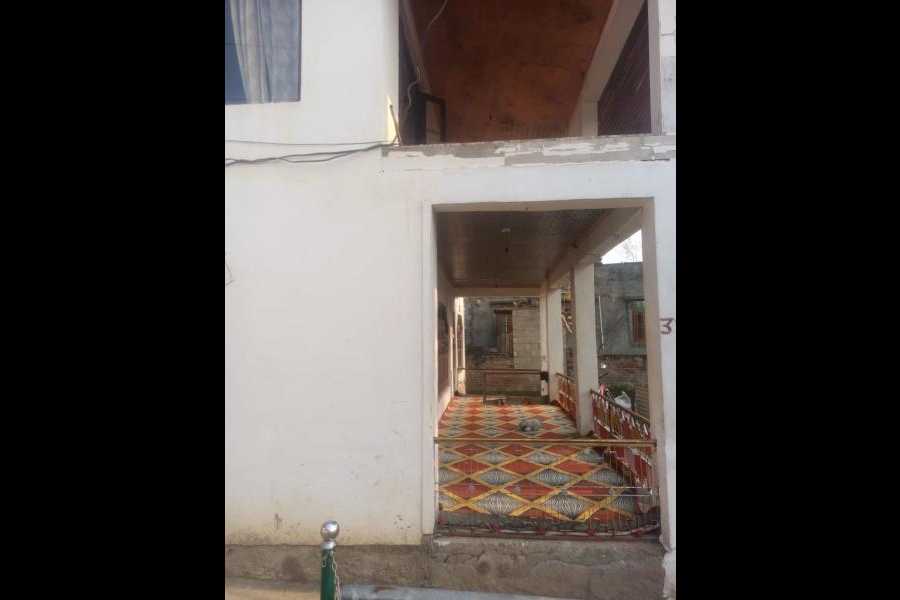The villages surrounding the sprawling Awantipora Air Force Station were last shaken in May during Operation Sindoor, when a series of loud explosions from suspected Pakistani drone attacks echoed across the karewas — the region’s elevated plateaus.
That fear resurfaced on Monday night in a quieter but more disturbing form, as news spread that two young doctors from the area — Umar Mohammad Nabi and Muzammil Ahmad Ganai — had been identified as key operatives in what police called a “white-collar terror module”.
More disturbing for the villagers, however, is the thought of how two bright doctors with “no history” of involvement in militant activities and with little time for activities beyond studies could be part of the radical module.
The villagers heard massive explosions in May during Operation Sindoor, when the air force base on the vast elevated karewa was reportedly attacked by drones. The base is well protected, and several large watchtowers stand guard over the perimeter. A detachment of the base, atop a karewa, borders Koil village, suggesting it is always under their watch.
The modest single-storey house of Umar, the prime suspect and alleged bomber, was desolate when The Telegraph visited the village on Tuesday afternoon. Moments earlier, a large contingent of police and security forces had whisked away his father, Ghulam Nabi, weighed down by depression for years, for questioning.
“They have picked up everyone in the house, except the wife of Umar’s elder brother, a plumber, and their kid. On Monday night, they picked up his mother and two brothers. Today, they picked up the father, who has been suffering from depression for years. They put a cloth around his face and took him away,” a relative said. “The entire village is in shock. It is hard to believe that they could be involved in militancy.”
Umar’s father was a government teacher who quit the job due to depression, leaving the responsibility of raising the children entirely on the mother. She worked tirelessly all her life to provide for them, locals said.
A kilometre away is the home of Muzammil, a member of a well-educated and well-off family who proudly call themselves Indians. The third accused doctor is Adeel Rather, a resident of far-off Kulgam, who was arrested in Uttar Pradesh’s Saharanpur on November 7.
“All our lives, we faced stones for being the first to participate in the polls. My father was a village muqaddam (head), and we always distanced ourselves from militant activities. But today we are being branded a militant’s family. I can never believe that my son is a militant,” Muzammil’s father Shakeel Ahmad said.
Shakeel’s daughter is also a doctor, and the youngest son is an aspiring doctor. The elder son, Abbas, a farmer, was picked up by the police last night for questioning.
Though the villagers were intensely busy debating the incident, the village looked normal. People were busy with their routine work. The shops were open, a far cry from the years before the scrapping of Article 370 when thousands would surge on the streets to raise a cry for azaadi.
An iron-fist policy has put an end to such activities, which the administration believed would give birth to recruits. The alleged involvement of doctors suggests militancy can get recruits, more qualified, without such pro-azaadi spectacles.
The families of doctors, along with the villagers, are sceptical about their involvement in militancy, but, if true, the incident provides a rare window into the quiet radicalisation of certain Kashmiris — the reasons for which seem all too evident.
Most villagers are unwilling to talk to strangers here, lest it invite them some trouble. A graduate, a neighbour but not a relative, made a candid observation.
“We don’t trust the police when they say they are involved, but if it is true, the government should look within. They say militant activities and killings have stopped. They are sparing our bodies but attacking our souls daily — by forcing their culture, their religion on us,” he said before quietly moving on.
The newspaper, based on conversations with the families, found Muzammil was the first doctor arrested in Faridabad, where he worked at the Al-Falah hospital.
“He was arrested on October 30. The next day, there was a raid at our home. We later approached the police, who told us that Dr Muzammil was brought to Kashmir, but we were not allowed to meet him,” a relative said. Adeel’s arrest followed on November 7.
Relatives of Umar said there was a raid at their home on Monday — before the Delhi explosion — suggesting the police suspected he had arrived in Kashmir.
“After that, the family tried to call him, but his mobile phone was switched off. The last time the family had spoken to him was on Friday. He looked normal and said he was coming to Kashmir in the next few days,” a relative said.
It remains a mystery why security agencies and the Haryana police could not track him for 11 days after the arrest of Muzammil. Officials here said they had detained the parents of Umar for DNA testing. The samples will be matched with bodies lying at a Delhi hospital to determine whether Umar was killed in the explosion or remains at large.
The police believe Umar had gone into hiding after two Kashmiri doctors were arrested when a module of proscribed outfits Jaish-e-Mohammad and Ansar Ghazwat-ul-Hind was busted.









